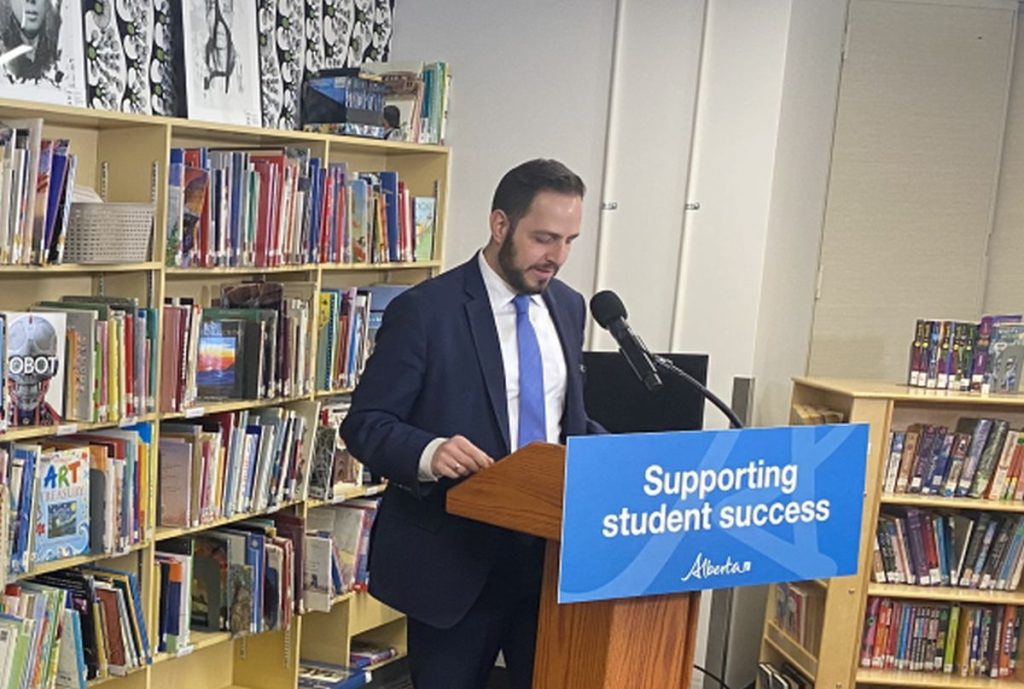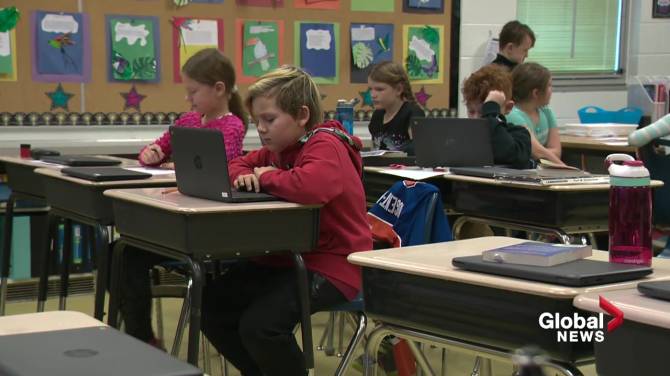Alberta is attempting to replace the 20-year-old social studies curriculum being taught in elementary schools for the third time.
Education Minister Demetrios Nicolaides released the government's draft social studies curriculum on Thursday. This comes after the NDP government's 2018 version and the UCP's 2021 attempt were both criticized and rejected. Nicolaides stated that his government spent seven months conducting consultations, meeting with over 300 teachers, Indigenous communities, and other experts.
More than 12,800 surveys were completed in the fall of 2023 by members of the public wanting to provide input on a new document. Despite this, University of Alberta professor Carla Peck believes the draft still misses the mark. Carla Peck told Global News, "The third time is not the charm."
Among the major changes, Grade 5 students would learn about ancient civilizations including China, Greece, and Rome.
In Grade 3, students would learn about Alberta’s geography, natural resources, and First Nations, instead of in Grade 4. In Grade 2, they would learn about Canada, including taxes and the Supreme Court.
According to Peck, who researches elementary school social studies, "I just don’t think developmentally, kids who are seven years old are ready yet to be learning about those complex, sophisticated ideas."
Previous criticism of the 2021 draft included its excessive focus on students memorizing information rather than understanding it.
“It’s really disappointing.”
Peck is concerned that this is still the case, and that students will simply be expected to regurgitate textbook information instead of absorbing it.
In Grade 4, students would learn about colonialism and the benefits to European countries and colonists, without mentioning the impact on Indigenous communities.
Peck stated, "I would characterize this curriculum document once again, as we saw in 2021, as very white, very Eurocentric."
Students would learn about residential schools in Grade 9.
Only two weeks are given to view and provide feedback on the document. Public engagement will close on March 29.
School boards may choose to pilot the curriculum starting this September after the public engagement period ends.
Chairs of both the Edmonton public and Edmonton Catholic school boards were present at the provincial announcement on Thursday, but both stated they did not have enough time to review the document.
When asked about the timeline, Edmonton Public School Board chair Julie Kusiek said, "With this announcement today and this additional engagement, we’re just going to need a bit more time to circle back within the division."
Albertans Edmonton Catholic chair Sandra Palazzo said, "Our division, like Edmonton public, will continue to support our teachers with our curriculum experts." The education minister expressed the urgency for the curriculum to be in place, even if the school boards decide they need more time.
Nicolaides said, "If we keep pushing some of the piloting or other pieces back, it just keeps pushing those dates back."
“And I want to be sensitive to that, but I’m also sensitive to the fact that our social studies curriculum is 20 years old.”
The province aims to have the new social studies curriculum for young students completely in place by September 2025.
A preliminary proposal for students in Grades 7 to 12 was also published, but the specific proposal for older students is still being developed.
Alberta is making its third effort to replace the 20-year-old social studies curriculum that is currently used in elementary schools.
“If we keep pushing some of the piloting or other pieces back, it just keeps pushing those dates back,” Nicolaides said.
“And I want to be sensitive to that, but I’m also sensitive to the fact that our social studies curriculum is 20 years old.”
The province wants the new social studies curriculum for elementary students fully implemented by September 2025.
A draft plan for Grade 7 to 12 students was also released but the detailed draft for older students is still in the works.




